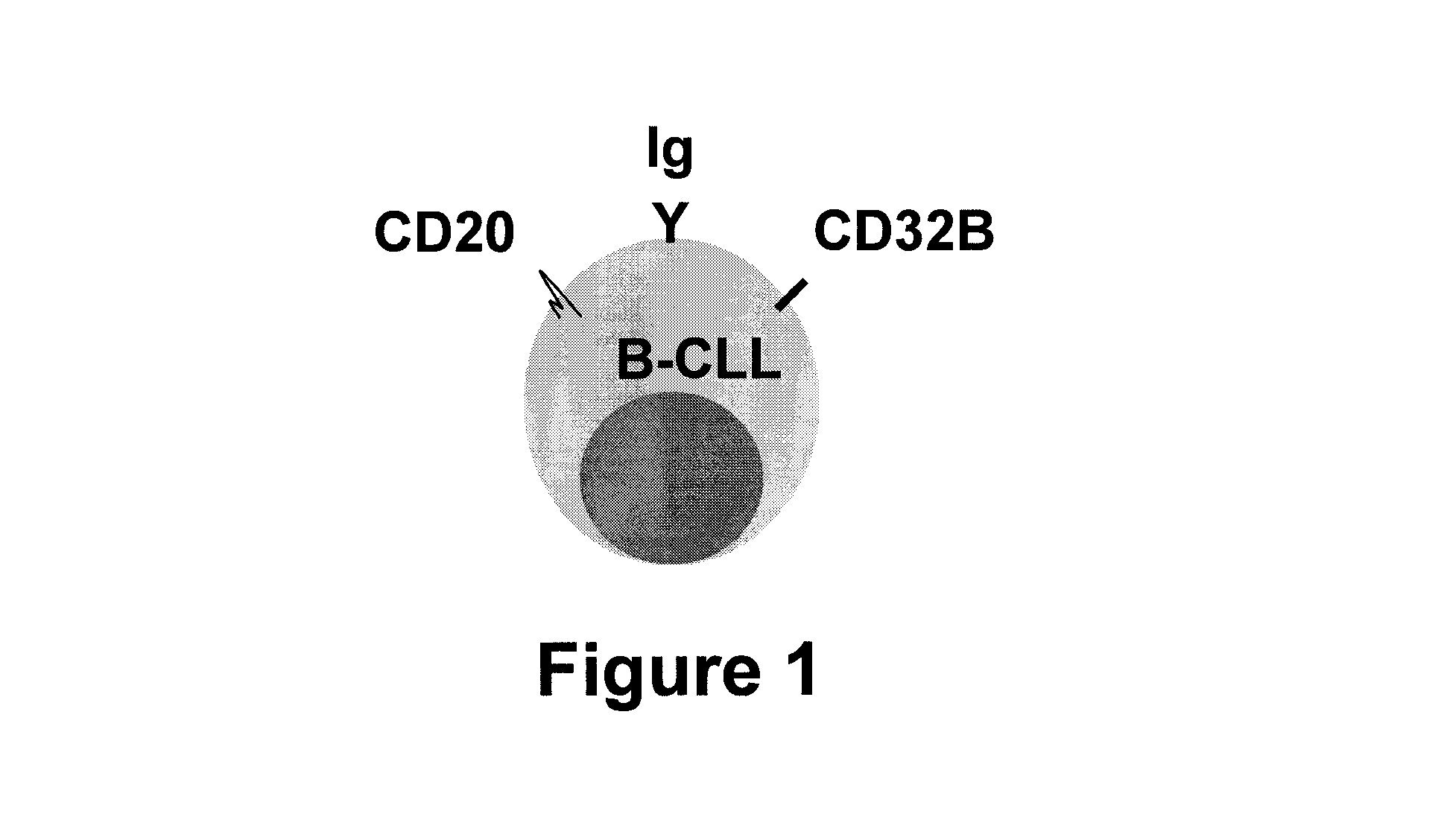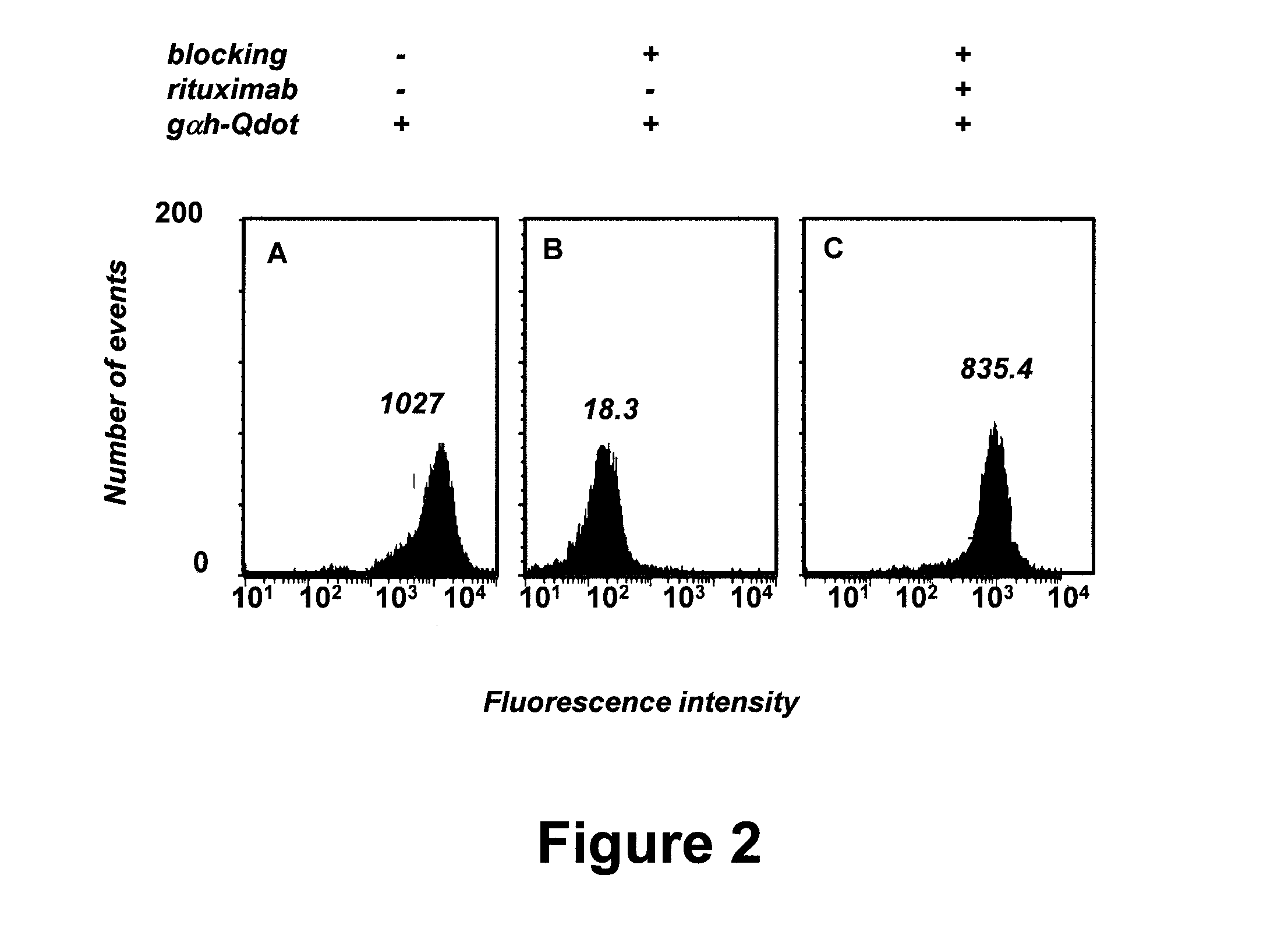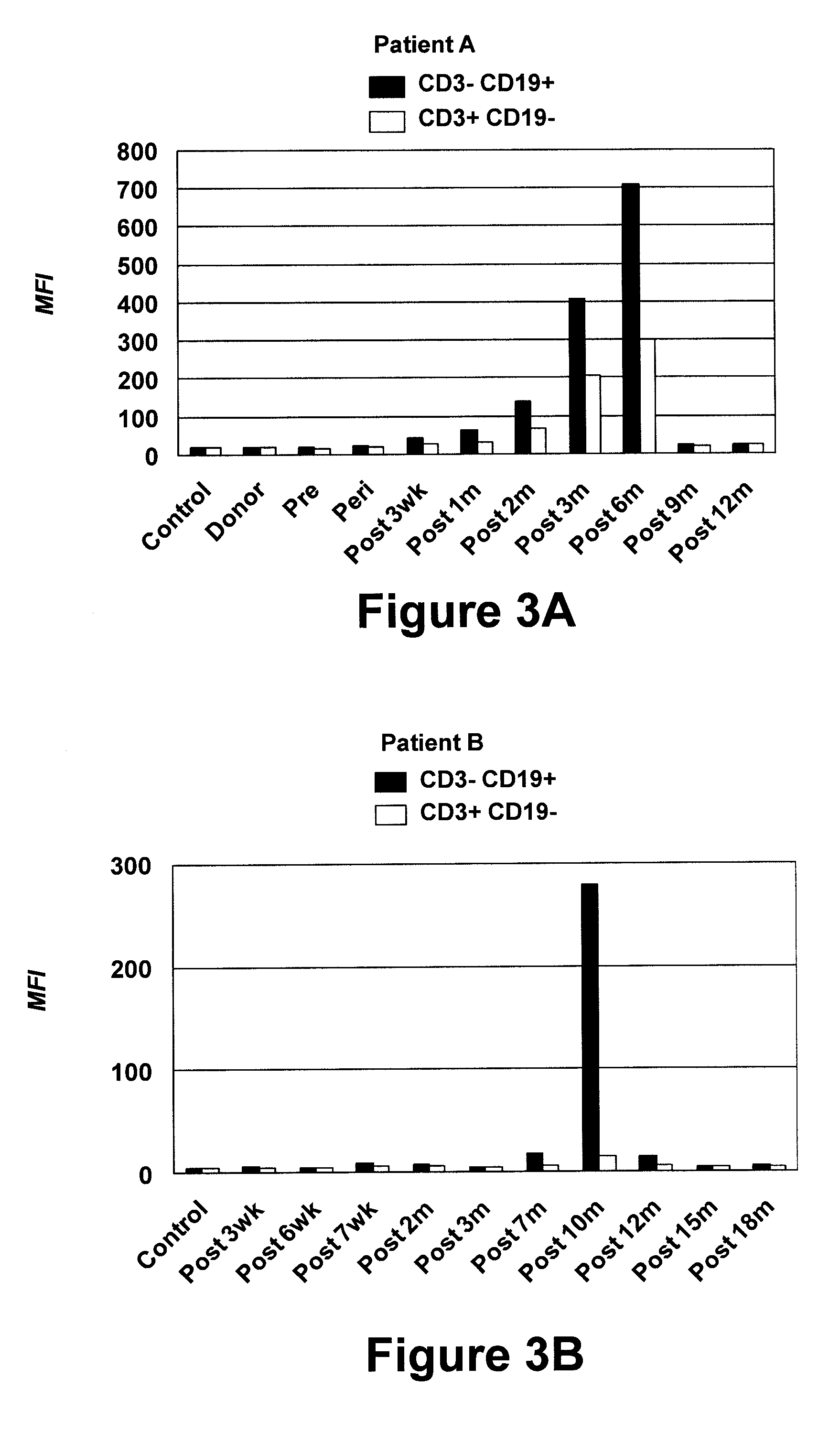B cell surface reactive antibodies
a technology of reactive antibodies and cell surfaces, applied in the field of b cell surface reactive antibodies, can solve the problems of unsatisfactory immunogenicity, damage to healthy cells and tissues, and inability to distinguish intracellular antigens from cell surface antigens
- Summary
- Abstract
- Description
- Claims
- Application Information
AI Technical Summary
Benefits of technology
Problems solved by technology
Method used
Image
Examples
example 1
[0065]This example demonstrates a sensitive flow cytometry assay for detecting serum antibodies with B-CLL cell surface reactivity in patients following alloHSCT.
[0066]Qdot 655 nanocrystals (Quantum Dot Corporation, Hayward, Calif.) were conjugated to goat F(ab′)2 anti-human IgG polyclonal antibody (gαh-Qdot) for use as a secondary antibody. Multiparameter flow cytometry was performed using an LSR II instrument (BD Biosciences, Immunocytometry Systems, San Jose, Calif.). Plasma samples from B-CLL patients and alloHSCT donors were prepared from blood and stored at −80° C. Peripheral blood mononuclear cells (PBMC) were prepared from blood using lymphocyte separation medium (MP Biomedicals, Solon, Ohio) and cryopreserved until use.
[0067]In a pilot experiment, approximately 5×105 PBMC were prepared from an untreated B-CLL patient. Detection was initially complicated by B-CLL cell surface expression of IgM, IgD, and Fcy receptors such as CD32B, as shown in FIG. 1. The flow cytometry resu...
example 2
[0076]This example demonstrates the generation of a post-alloHSCT human Fab library.
[0077]A human Fab library was generated using cryopreserved post-alloHSCT PBMC collected from Patient A at the peak of serum antibody response, i.e., at six months after transplantation, as described in Example 1. Total RNA was extracted from 2.5×107 PBMC using TRI Reagent (Molecular Research Center, Cincinnati, Ohio) and further purified using the RNEASY™ Mini Kit from Qiagen (Germantown, Md.). Approximately 100 μg total RNA was isolated and validated by agarose gel electrophoresis. First-strand cDNA synthesis from total RNA using an oligo(dT) primer and SUPERSCRIPT™ reverse transcriptase (Invitrogen) was performed according to the manufacturer's protocol. Vκ, Vλ, and VH encoding sequences were separately amplified from first-strand cDNA by a 35-cycle PCR using the FastStart High Fidelity PCR System from Roche (Indianapolis, Ind.) and combinations of 12 sense / 1 antisense primers for Vκ, 20 sense / 3 a...
example 3
[0081]This example demonstrates the enrichment of Fab with B-CLL surface reactivity from the post-alloHSCT human Fab library.
[0082]The post-alloHSCT human Fab library was selected on cryopreserved PBMC (consisting of >85% B-CLL cells) from an untreated B-CLL patient (Patient α). The cells were maintained in 6-well tissue culture plates for 1-2 days in RPMI 1640 medium (Invitrogen) supplemented with 5% (v / v) autologous serum. Five rounds of panning were carried out using the phage display protocol described in Barbas et al., Phage Display: A Laboratory Manual, Cold Spring Harbor Laboratory Press (Cold Spring Harbor, N.Y., 2001), and Rader et al., Methods Mol. Biol., 525: 101-128 (2009). All incubations were at room temperature unless noted otherwise. In the first round, freshly re-amplified phage library of Example 2 was pre-selected for functional Fab display through panning on rat anti-hemagglutinin (HA) mAb (Roche), which was immobilized on three wells of a 96-well ELISA plate (Co...
PUM
| Property | Measurement | Unit |
|---|---|---|
| cell surface reactivity | aaaaa | aaaaa |
| acid | aaaaa | aaaaa |
| surface reactivity | aaaaa | aaaaa |
Abstract
Description
Claims
Application Information
 Login to View More
Login to View More - R&D
- Intellectual Property
- Life Sciences
- Materials
- Tech Scout
- Unparalleled Data Quality
- Higher Quality Content
- 60% Fewer Hallucinations
Browse by: Latest US Patents, China's latest patents, Technical Efficacy Thesaurus, Application Domain, Technology Topic, Popular Technical Reports.
© 2025 PatSnap. All rights reserved.Legal|Privacy policy|Modern Slavery Act Transparency Statement|Sitemap|About US| Contact US: help@patsnap.com



